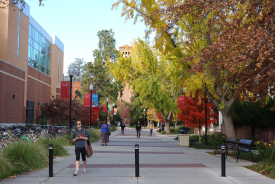When Elon Musk challenged the world to create ideas to revolutionize and innovate transportation, many answered. People from all over the world came forward with ideas and plans in order to bring Hyperloop One transportation to their country or state.
According to reports, in just five months of asking research institutions, universities, private companies and government sectors to submit proposals, Hyperloop One's Global Challenge received about 2,600 submissions.
Elon Musk's vision of a pod-like transportation that would travel through low pressure tubes at speeds that can reach 800mph or more will solidify soon because the company has narrowed it down to 35 semifinalists, as reported by The Christian Science Monitor.
The list includes representatives from 17 countries and includes all six inhabited continents. Hyperloop One CEO Rob Lloyd said that the 35 semifinalists have the ability to create solutions that can make a real social and economic impact.
From the 35, eleven are from the United States. India comes in second with five submissions. The United Kingdom comes third with four submissions. According to Shailen Bhatt, the Colorado Department of Transportation Executive Director, even if they do not win, they are still grateful to be part of the future of transportation. Check out the Denver Channel's news report on this below.
The Global Challenge is a chance to bring transport technology to the 35 regions. But before that happens, the semifinalists need to showcase their proposals on February 28 in New Delhi, India, April 6 in Washington D.C., and April 27 in London, UK. The semifinalists would have to present their models, maps, videos and renderings of their proposals from engineers and planners who care about the future of transportation, as reported by Techno Buffalo.
That is just one of the things happening with Hyperloop and SpaceX this year. The Hyperloop competition is set at SpaceX's Hawthorne, California site. There will be a test track where teams will test their human-scale pods on on January 27-29, 2017. Both programs are happening parallel to each other. Hopefully, in a few years, the end result will feature a working pod with a functional tube.
© 2025 University Herald, All rights reserved. Do not reproduce without permission.








